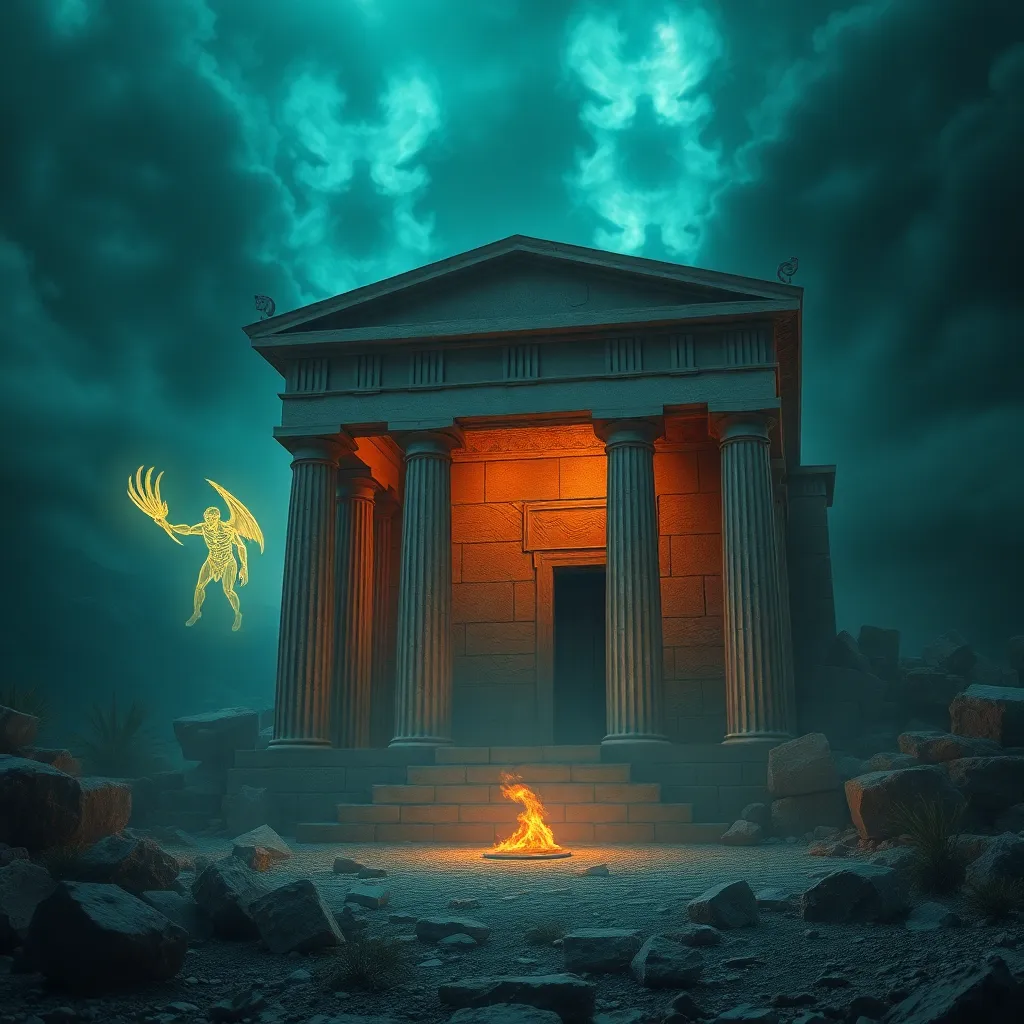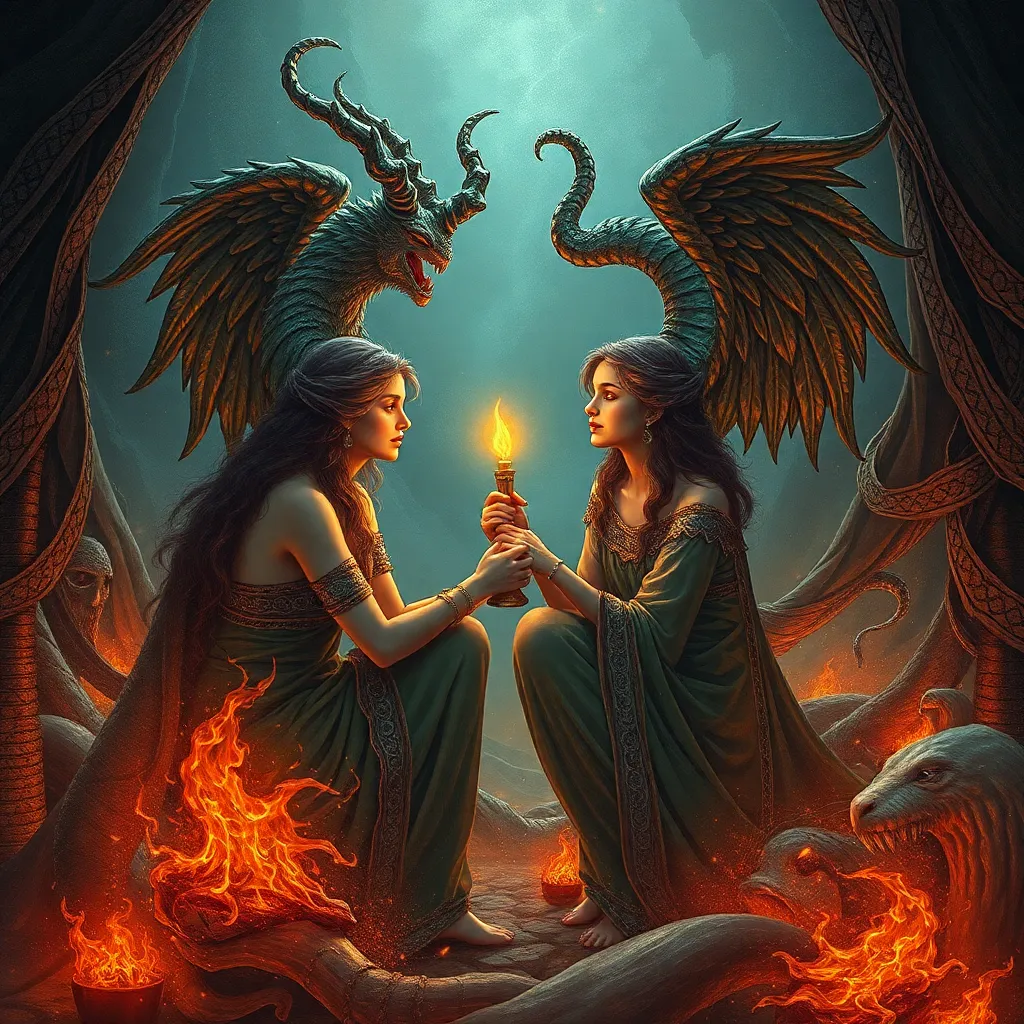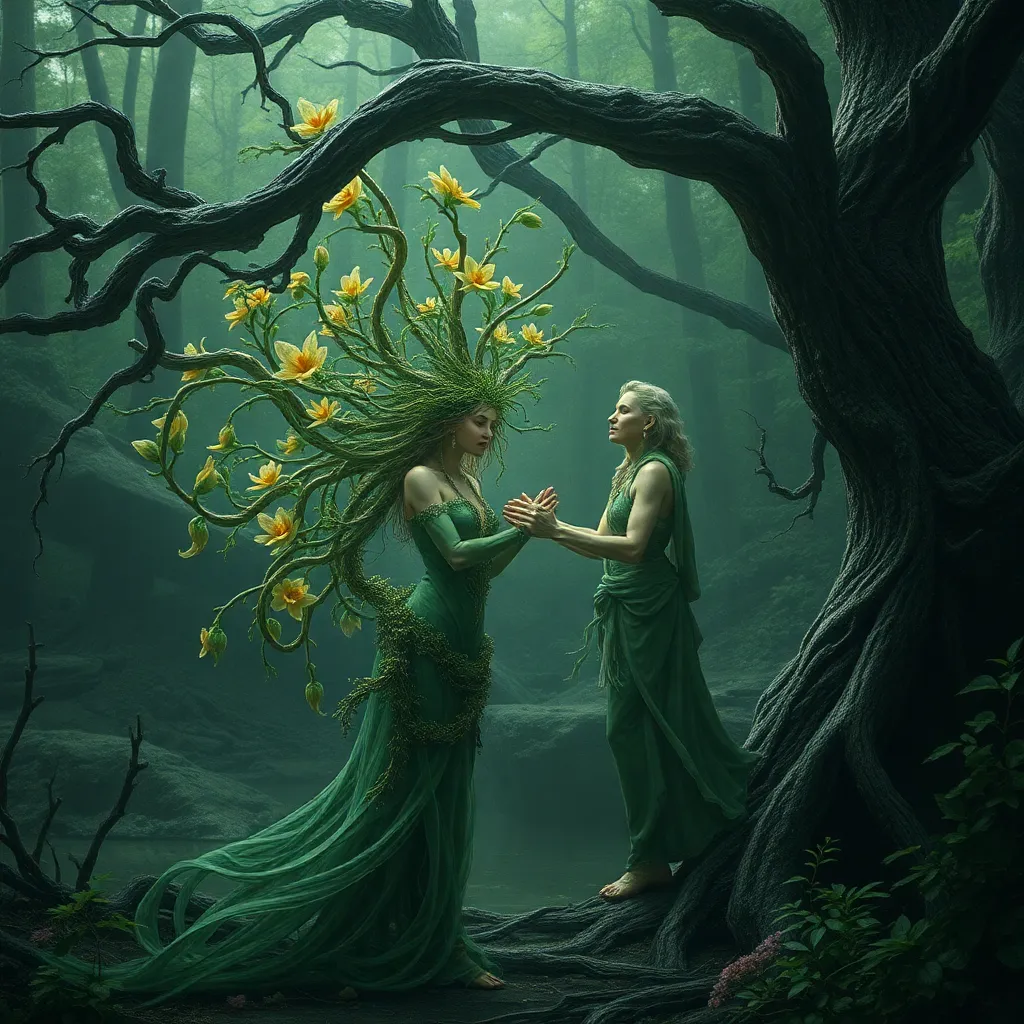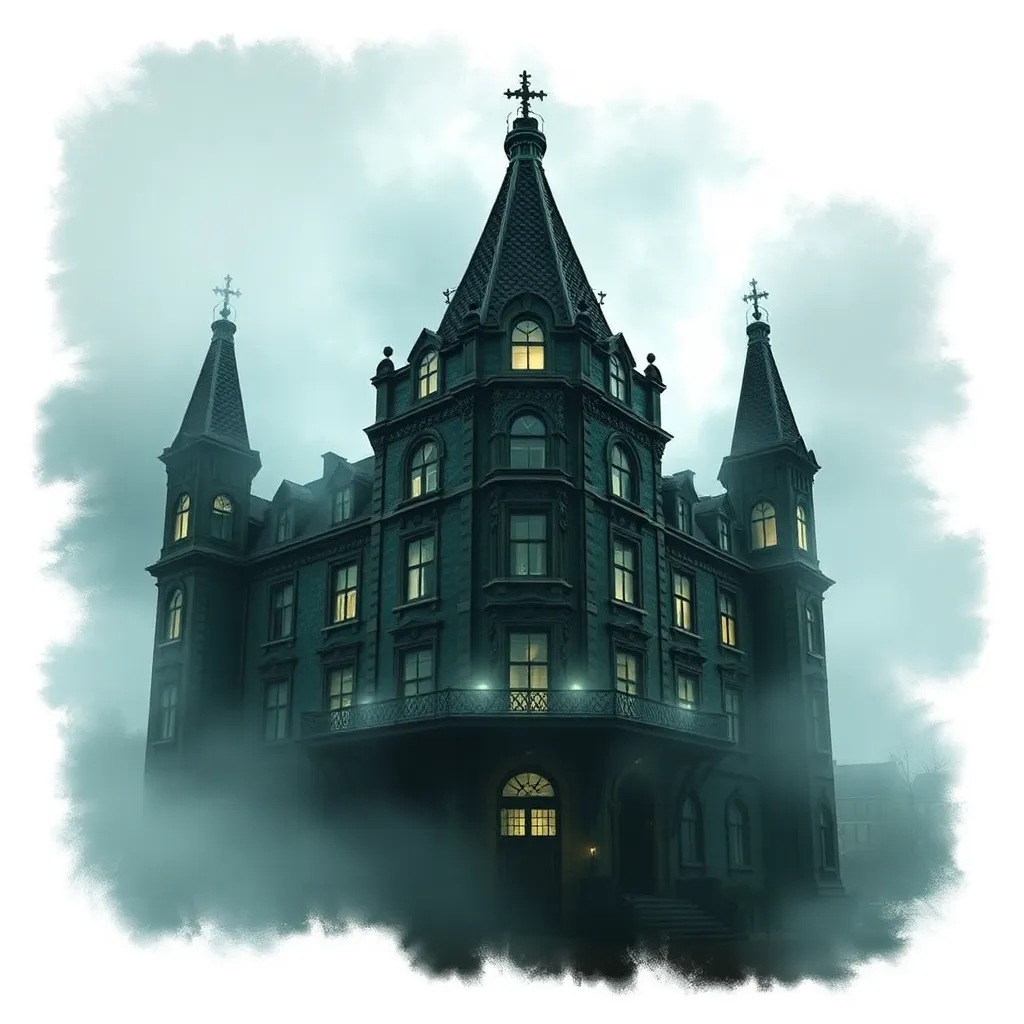The Unrest of the Ancients: Poltergeist Legends of Ancient Greece
I. Introduction
Poltergeist phenomena, often characterized by disruptive and mischievous activities attributed to unseen forces, have fascinated cultures around the world. In ancient Greece, these legends held significant cultural and spiritual meaning, reflecting societal beliefs and fears. This article delves into the poltergeist legends of ancient Greece, exploring their historical context, cultural interpretations, and enduring legacy.
II. Historical Context of Ancient Greek Beliefs
Ancient Greek religion and spirituality were deeply intertwined with the natural world and the cosmos. The Greeks believed in a pantheon of gods and spirits that influenced their daily lives. From the Olympian deities to local spirits, the presence of the supernatural was a constant in their existence.
Spirits and deities played crucial roles, acting as protectors or harbingers of fate. The ancient Greeks sought to understand their world through these beliefs, and the concept of restless spirits emerged as a way to explain the unexplained disturbances in their lives.
A. Overview of ancient Greek religion and spirituality
- Polytheistic beliefs with a rich mythology
- Daily rituals and offerings to appease the gods
- Spirits of the deceased and their potential influence
B. The role of spirits and deities in daily life
Spirits were believed to inhabit various aspects of the natural world, from trees to rivers, and even homes. Offerings were made to ensure harmony and avoid the wrath of these entities.
C. Introduction to the concept of restless spirits
In this context, the notion of poltergeists—spirits that cause disturbances—was born. These spirits were thought to be trapped between the world of the living and the dead, often due to unresolved issues or violent deaths.
III. Poltergeist Legends in Ancient Greece
In ancient Greek lore, poltergeists were distinct from other supernatural entities like ghosts or demons. They were known for their physical manifestations, such as moving objects or creating noises, rather than appearing as spectral figures.
A. Distinction between poltergeists and other supernatural entities
While ghosts were often seen as the spirits of the deceased, poltergeists were viewed as more mischievous entities, sometimes thought to represent the unrest of the living.
B. Notable legends and stories involving poltergeist activity
Several stories illustrate the poltergeist phenomenon in ancient Greece:
- The tale of the haunted house in Athens: This legend tells of a house where strange noises echoed at night, objects flew off shelves, and residents experienced a chilling presence. The disturbances were attributed to a restless spirit seeking justice for a past wrong.
- Stories from rural communities: In rural areas, tales of poltergeist activity often involved mischief around farms and homes, where unseen forces would upset livestock or scatter tools, leading villagers to believe they were being haunted.
IV. Cultural Interpretations of Poltergeist Activity
The occurrences attributed to poltergeists were not merely viewed as supernatural disturbances but were laden with symbolism and societal meanings.
A. Symbolism of poltergeist occurrences
Poltergeist activity often symbolized deeper societal issues, such as:
- Unresolved conflicts within the community
- Personal grievances of the living
- Social or political unrest
B. The connection between poltergeists and societal unrest
In times of turmoil, poltergeist stories often surged, reflecting the collective anxieties of the population and offering a way to externalize their fears.
C. The role of gender in poltergeist legends
Many poltergeist legends involved female spirits, often linked to themes of domesticity and familial roles. This connection highlighted societal expectations and tensions surrounding gender in ancient Greek society.
V. Notable Figures and Philosophers
Several ancient philosophers and historians commented on the nature of spirits and the supernatural, contributing to the understanding of poltergeist phenomena.
A. Ancient philosophers and their views on spirits
Philosophers like Plato and Aristotle pondered the existence of spirits, often viewing them as manifestations of the soul or as intermediaries between the divine and human realms.
B. Accounts from historians and writers
Historians such as Herodotus recorded tales of hauntings and disturbances, lending credence to the belief in poltergeists in their narratives.
C. The influence of mythology on poltergeist narratives
Mythological tales often included elements of hauntings and disturbances, illustrating how these stories influenced the development of poltergeist legends in ancient Greek culture.
VI. Rituals and Responses to Poltergeist Phenomena
In response to poltergeist activity, the ancient Greeks developed various rituals and practices aimed at appeasing restless spirits.
A. Ancient practices for appeasing restless spirits
- Offerings of food and drink
- Rituals involving purification and cleansing
- Invocations of the gods for protection
B. The role of oracles and divination in addressing poltergeist issues
Oracles were often consulted to understand the cause of disturbances and to find ways to placate the spirits involved.
C. Community involvement in rituals and their significance
Community gatherings for rituals not only served to address the poltergeist issues but also reinforced social bonds and collective beliefs.
VII. Legacy of Poltergeist Legends in Modern Culture
The poltergeist legends of ancient Greece continue to resonate in contemporary culture, influencing modern ghost stories and paranormal studies.
A. Continuation of ancient beliefs in contemporary Greece
Many Greeks still hold beliefs in spirits and the supernatural, often attributing unexplained phenomena to poltergeists or similar entities.
B. Influence on modern ghost stories and paranormal studies
Modern literature and media continue to draw from ancient tales, with poltergeist stories featuring prominently in horror genres and academic studies of the paranormal.
C. Comparison to poltergeist legends in other cultures
Poltergeist legends can be found in various cultures worldwide, each reflecting local beliefs and societal issues, showcasing a shared human fascination with the supernatural.
VIII. Conclusion
This exploration of poltergeist legends in ancient Greece reveals their significance as reflections of societal beliefs, fears, and cultural practices. Understanding these ancient narratives provides insight into the human experience and our enduring fascination with the supernatural.
As we reflect on the importance of these beliefs, it becomes clear that the legends of poltergeists remain relevant today, serving as a reminder of the mysteries that still linger in our world.



